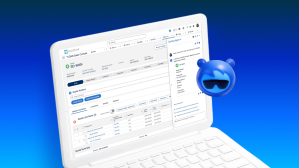Key Takeaways
- By 2027, AI is expected to handle half of all customer service cases — up from just 30% today.
- That sharp climb reflects a broader shift underway: AI has leapt from the margins to the mainstream, becoming the #2 priority for service leaders, second only to improving the customer experience.
- New research from Salesforce’s 7th State of Service report also reveals how AI is transforming front-line responsibilities and career opportunities as businesses evolve into agentic enterprises.
According to a new global survey of 6,500 service professionals, AI is no longer just automating decision trees — it’s reshaping how service teams spend their time, grow their careers, and meet customer expectations. So what does this shift look like in practice? Here are three key trends, according to Salesforce’s newest State of Service report.
AI leaps in priority as service teams eye gains in speed, cost, and customer satisfaction
AI has vaulted up the priority list for service leaders — from #10 to #2 in just a year. What hasn’t changed is service leaders’ top focus: improving the customer experience.
“Elevating the customer experience remains the North Star for service teams, but how we deliver on it is evolving,” said Kishan Chetan, EVP and General Manager of Salesforce Service Cloud. “AI agents go beyond predictions and automation; they can understand context, take action, make decisions, and adapt in real time. That shift gives human reps more space to focus on what they do best: solving high-stakes, complex problems and building trust with customers.”
This shift is already underway: Service teams estimate 30% of cases are currently handled by AI. By 2027, as AI agents — or digital labor — gain momentum, they project that figure will reach 50%. This transition reflects the emergence of the Agentic Enterprise, where AI agents work alongside human teams as collaborative partners, reasoning and acting independently to handle routine tasks while employees focus on more complex, higher-value work.
Beyond resolving more cases, teams are betting on AI agents to amplify their impact, from cutting service costs to improving customer satisfaction. Service professionals project that agentic AI will boost upsell revenue by 15%. Expectations are even higher in life sciences and biotech, where service pros project a 20% upsell lift.
Reps with AI report less rote work, more growth opportunities, and a brighter career outlook
Aside from organization-level gains, AI is reshaping individual service reps’ experiences at work. Reps using AI spend 20% less time on routine cases — freeing up an estimated four hours per week for more complex work. That means less time handling password resets and status updates and more time making nuanced judgment calls and managing tricky exceptions. Reps with agentic AI spend even more time on high-complexity cases, dedicating a quarter of their week to the thorniest issues.
Service reps with agentic AI spend a quarter of their week on highly complex issues
With AI agents taking on more cases, service reps have more time for other priorities — and every minute counts. As George Pokorny, SVP of Global Customer Success at OpenTable put it, “Saving just two minutes on a 10-minute call lets our service reps focus on strengthening customer relationships.”
That extra time adds up. Compared with nonusers, agentic AI-enabled service reps are significantly more likely to mentor colleagues, lead cross-functional projects, and improve processes. They’re also more likely to work with high-value customers and take on leadership roles, showing how AI can open doors for more impactful, career-building work.
In fact, 71% of service reps with AI say it’s creating growth opportunities. Specifically, 86% of service reps have developed new skills, and 81% say their role has gotten more specialized as a result of working with AI tools. Most importantly, service reps with AI feel good about where they’re headed, with agentic AI users being the most optimistic about their career prospects. This may reflect a selection bias among future-focused early adopters, but it aligns with their reported skill-building, specialization, and leadership opportunities.
“We’re seeing that AI isn’t just changing how service reps work; it’s expanding what they’re capable of,” said Chetan. “Reps using AI — especially AI agents — report building new skills and feeling more confident about their careers. That’s a powerful signal that AI, when applied thoughtfully, can unlock upward mobility.”
As organizations roll out AI, security and accuracy remain top of mind
While service reps agree that AI is a lever for growth and opportunity, AI implementation does come with challenges. Still, 9 in 10 service leaders say the obstacles they’ve faced were expected — and in many cases, less challenging than anticipated. Security remains the top concern, with 51% of service leaders saying security concerns have delayed or limited their AI initiatives.
Even there, sentiment is shifting. Salesforce’s latest State of IT: Security report found that all surveyed security leaders expressed optimism about AI agents, with each identifying at least one area where these tools could strengthen their security posture. Many pointed to improvements in threat detection, anomaly monitoring, and breach prevention. When implemented with care, agentic AI can be viewed not just as a risk to mitigate but as a tool to improve resilience.
“AI is creating new opportunities for customers, service teams, and businesses,” said Chetan. “But we also need to be clear-eyed: AI implementations must be grounded in security, trust, and thoughtful change management so benefits aren’t just measured in efficiency gains but in how they support the workforce as well.”
Go deeper:
- Read the full State of Service report
- Learn how new Agentforce Service updates help teams slash support costs and build customer loyalty
- Hear how service leaders from 1-800 Accountant and Salesforce are preparing their organizations for the future in this webinar
- Discover how Service Cloud helps service teams across every industry
- Join the Serviceblazer Community
- Find more insights on the Salesforce Stat Library
Methodology:
Data is sourced from a double-anonymous survey of 6,500 service professionals and decision makers conducted from April 25 through June 6, 2025. Respondents represented Argentina, Australia, Austria, Belgium, Brazil, Canada, Chile, Colombia, Czech Republic, Denmark, Finland, France, Germany, Greece, India, Indonesia, Ireland, Israel, Italy, Japan, Mexico, Netherlands, New Zealand, Norway, Peru, Philippines, Poland, Portugal, Saudi Arabia, Singapore, South Africa, South Korea, Spain, Sweden, Switzerland, Thailand, Turkey, United Arab Emirates, United Kingdom, and the United States.
















